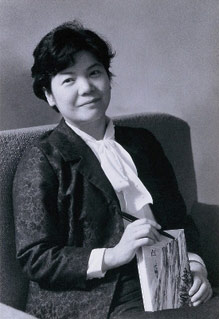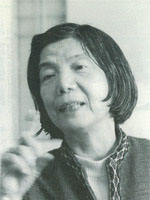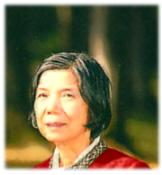Ayako Miura
Ayako Miura (Japanese三浦 绫 子, born as Ayako Hotta (堀 田 绫 子), born April 25, 1922 in Asahikawa, † 12 October 1999) was a Japanese writer.
Miura attended until 1939 the Asahikawa Women's High School and taught until the end of the war as an elementary school teacher. In 1946, she contracted tuberculosis and was in the hospital for the first time in contact with Christian thought. In 1952 she converted to Christianity, 1959, she married Miura Mitsuyo, who was also a Christian. From 1961 until the publication of her first novel Hyōten (1964 ), which won her an award from the magazine Asahi Shimbun, she operated a business. The second part of the novel ( Zoku hyōten ) appeared in 1961.
One of her most popular novels, Shiokari tōge, appeared in 1968. Hosokawa In Garasha fujin (1975 ) Miura wrote about a Christian woman in the time of the prohibition of Christianity in the Edo period. Based on the novel Deiryū chitai (1978 ) was published in 1981, the essay Nanakamado no machi kara. 1992 with her Parkinson's disease was diagnosed. In 1995, she completed the novel Inochi aru kagiri, while three more novels that appeared in continuation in various journals, unfinished remained.
Swell
- Chieko Irie Mulhern: Japanese Women Writers: A Bio - Critical Sourcebook. Greenwood Publishing Group, 1994, ISBN 9780313254864, pp. 213-220.
- John Scott Miller: Historical Dictionary of Modern Japanese Literature and Theater. Scarecrow Press, 2009, ISBN 9780810858107, page 73
- Japanese Literature History - Miura Axako










